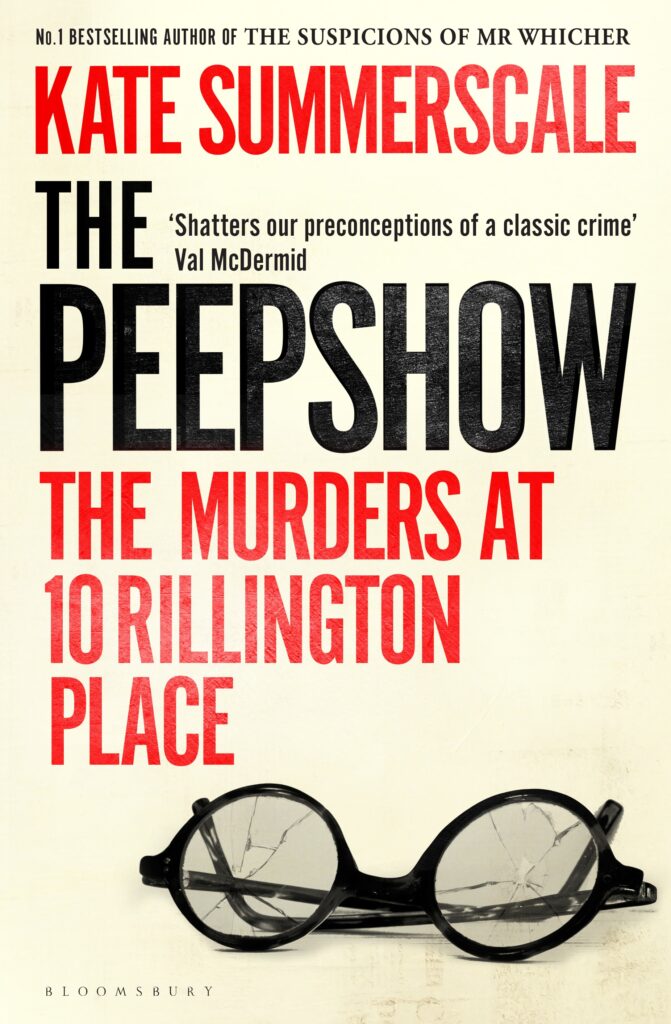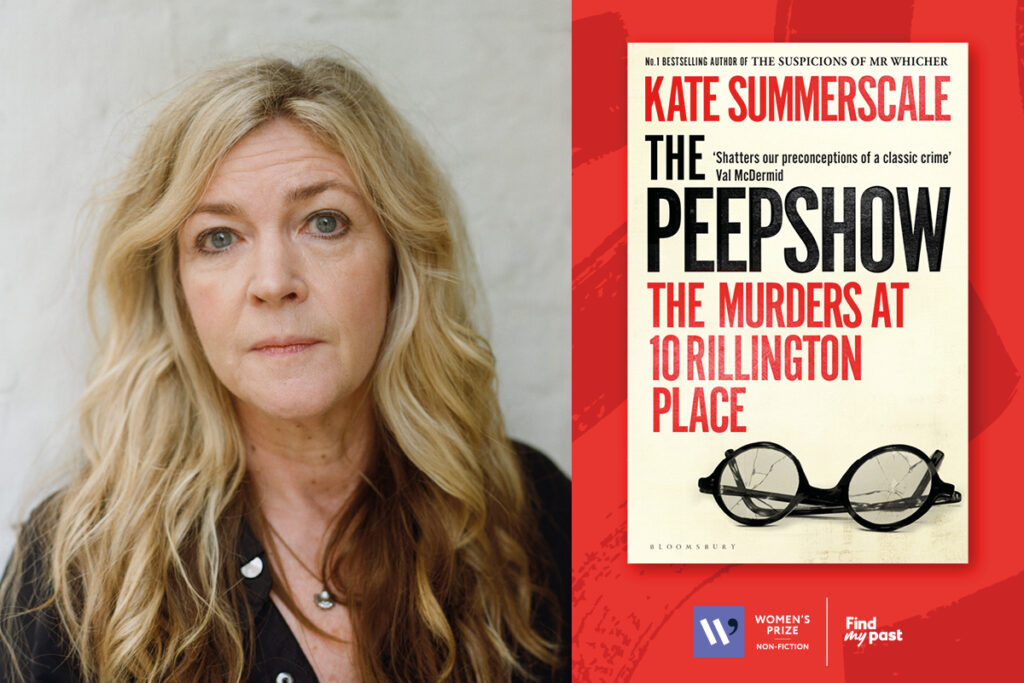In The Peepshow: The Murders at 10 Rillington Place Kate Summerscale takes on an infamous murderer from the 1950s.
Longlisted for the Women’s Prize for Non-Fiction 2025, Chair of judges Kavita Puri says the book is: ‘How history should be written, it evocatively brings the characters and place alive, about an extraordinary true crime story. Carefully researched, it is hard to put down’.
To find out more about the book we spoke to Kate about her writing, research and current reads.
How would you describe your book to a new reader?
It’s the story of a serial killer in London in the 1940s and 1950s, of the women he murdered, and of the world that shaped his crimes. It is also a book about why we are drawn to true-crime stories — our appetite for horror, and for understanding.
What is the one thing you’d like a reader to take away from reading your book?
I hope a reader might feel they have travelled, briefly, to another place and time.
How did you go about researching your book? What resources did you find the most helpful?
My main source was the huge cache of files on the Rillington Place murders at the National Archives in Kew. They included witness statements, forensic reports, trial transcripts, floor plans, letters, photographs. The case was also extensively reported in the press and in contemporary books and pamphlets. With this almost overwhelming amount of material, I saw the possibility of covering the murder investigation closely, as it unfolded, and of charting the experiences not only of Christie’s victims but of those at the edges of the case: the journalists who investigated it, the murderer’s neighbours, the women who escaped him, his victims’ families and lovers and friends.
Which female non-fiction author would you say has impacted your work the most?
I love Janet Malcolm’s books.
What is the best piece of writing advice you have ever received?
It’s good to experiment with how to start your book: when you find the right opening, you will know which story you want to tell.
Is there a non-fiction book you recommend all the time? If so, what is it and why do you recommend it?
Helen Garner’s This House of Grief, an acute, harrowing account of the trial of an Australian man charged with murdering his sons. I also recommend Hilary Mantel’s non-fiction: her brilliant essays, and her wonderful memoir Giving Up The Ghost.
What are you currently reading?
The Years by Annie Ernaux









